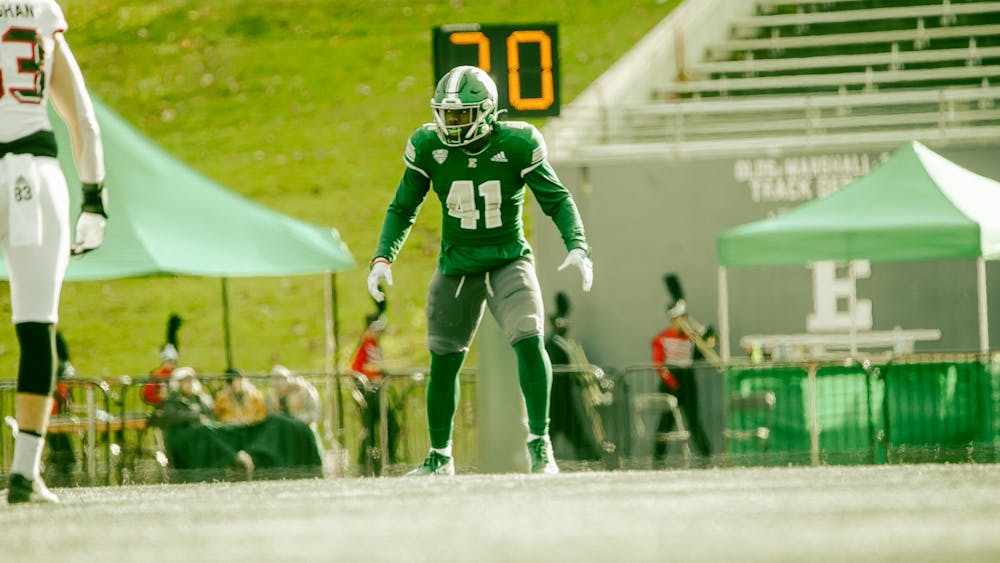As a rule of thumb, because the offices are so similar to each other, governors have tended to make better presidents than, say, first-term senators. But, for almost the first two centuries of the United States’ existence, the profession that produced the most successful presidents aside from the political sphere itself was the military. After every major war, the country has elected a general as its President — George Washington after the Revolutionary War, Ulysses S. Grant after the Civil War, Dwight D. Eisenhower after the Second World War and very nearly Douglas MacArthur after the Korean War. Now, however, it seems as though the game is changing and businessmen are starting to run instead of career military men.
Since about the 1990s, the rules of the game appear to have changed. After Operation Desert Storm (1990-1991), there was no candidate Schwarzkopf. After the War in Afghanistan (2001-2014), there was no candidate Abizaid. After the Iraq War (2003-2011), there was no candidate Franks. Fallon, Dempsey, Stirrup, Petraeus, Mattis — all of them commanded prominent U.S.-involved wars, yet none of them entered politics. Perhaps contemporary wars simply aren’t the kind of wars that produce political figures.
Even if Korea, Vietnam, Afghanistan, etc. had been great victories, the ramifications which would have echoed from far away regional conflicts could not have matched those which echoed from the War for Independence, the war between the States or the two world wars. But the Korean War ended in stalemate, the Vietnam War ended in humiliation and the invasion of Grenada was not so much a “war” as it was the overthrow of a short-lived regime, which took power in a coup.
The last “war” the United States won indisputably was the Gulf War in February 1991, midway through Colin Powell’s tenure as Chairman of the Joint Chief of Staff. Though he nearly entered politics, first as a potential Vice Presidential nominee for Bill Clinton in 1992, a potential challenger to Clinton in 1996 and a potential presidential candidate in 2000, he never did.
Today, the United States is seeing — with a bang — not only the military lose its status as the second-most productive source of political leaders. It is seeing, on both sides of the political aisle, an implosion of the political class and the emergence of something else — a third category of politician.
To many of his supporters, the fact that Donald Trump is not a “politician” means he is superior to a politician. Bernie Sanders, to many of his supporters, is not a “politician” but a maverick who happens to hold public office. Trump’s supporters are as confident that he will “make America great again” as Sanders’ supporters are confident in his “Political Revolution.” Both candidacies, I believe, signal a profound shift in the nature of American politicians.
In 1992 and 1996, Texas billionaire Ross Perot ran on an almost exclusively anti-NAFTA platform. In 1999, Donald Trump briefly ran for president on the Reform Party ticket. In 2002, billionaire financier Michael Bloomberg won the first of what would be three terms as Mayor of New York City. In 2003, millionaire Mitt Romney became Governor of Massachusetts. Now in 2016, Trump, after his third consecutive victory in the primaries, looks like he will go all the way. In the background, former Mayor Bloomberg is also toying with a presidential run.
With only minor exceptions, a common theme runs through all of their candidacies: all have come from economic hubs and have been fabulously wealthy and all have run on almost exclusively economy and trade-based platforms. They are the third category of politician: the businessman.
The era of military men who enter politics will pass with Powell, now 78 and retired. The era of businessmen-politicians seems to be fast approaching if it is not already a reality.
Many states have already had businessmen-turned-politicians be they Rep. Darrell Issa of California or former Gov. Jon Corine of New Jersey. But as one Governor and Senator after another — Rick Perry, Rand Paul, Chris Christie, Jeb Bush, Marco Rubio and others — drops out of the 2016 race, could the businessman Trump be just a fluke or could he be the sign that another era is beginning?








